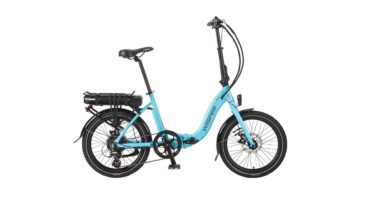Judges overthrow “flawed” low traffic scheme ruling, Taxi orgs to pay costs
Court of Appeal judges have overthrown an earlier decision that declared a Bishopsgate low traffic scheme illegal in a landmark ruling that could have implications on future active travel infrastructure objections.
Transport for London will now be due payment of all legal costs on the case brought by the Licensed Taxi Driver’s Association and the United Trade Action Group. The cab body was unhappy that road space was handed to cyclists, yet now finds itself seemingly unable to appeal further, liable for all legal costs and lumped with an initial bill of £50,000, due within a fortnight.
The initial January ruling drew attention with Mrs Justice Lang branding the Bishopsgate low traffic infrastructure as “extreme”. Three appeal justices have now overturned that ruling, describing the verdict as “seriously flawed” in their overturning.
In the 34-page document explaining the reversal there is a thorough trawling of the facts associated with the Bishopsgate Streetspace scheme, with the appeal judges strongly disagreeing that low traffic neighbourhoods and ‘school streets’ brought the negative impacts claimed, nor was fair consideration given to the pandemic’s impact on the need for such infrastructure.
The Evening Standard has the judges as stating: “Each (scheme) was in accordance with the policy not only of the Mayor and TfL but also of the Secretary of State for Transport of encouraging walking and cycling rather than other means of travel.
“They were not universally popular, but we think it would be extraordinary and not right for a court to condemn them as extreme or ill-considered, especially during the pandemic.”
The Bishopsgate scheme in particular maintained taxi access to transport hub Liverpool Street, but gave buses and cyclists rights to use dedicated new spaces on weekdays, to which the taxi org drew ire. The Standard reports that around 6,000 cyclists use the stretch daily and around 700 per hour at peak times. The scheme’s intention was to encourage greater levels of active travel as Covid spread in order to limit contact on enclosed transport forms.
Sadiq Khan, London’s Mayor, has hailed the appeal victory as vindication of “bold policies”, but the Taxi orgs still disagree and will try to challenge the verdict yet again, according to Taxi-point. This, highlights reporter Ross Lydall, is unlikely to succeed.
A spokesperson for Mr Khan said: “Sadiq is determined to do everything he can to enable more Londoners to walk and cycle and schemes like Bishopsgate are central to this.
“The Court of Appeal judgement is a vindication of his bold green policies which are protecting Londoners’ health and making it safer and easier to get around by bike and on foot.
“Sadiq will continue to work with councils across the capital to ensure a green recovery for our city, and take action to address the air quality and climate change crisis.”
Many damaging myths attached to low traffic schemes have been dispelled with public approval generally increasing over time for infrastructure that promotes active travel. Most recently it was found there is no evidence that emergency service response times are jeopardised by cycle lane provision.



